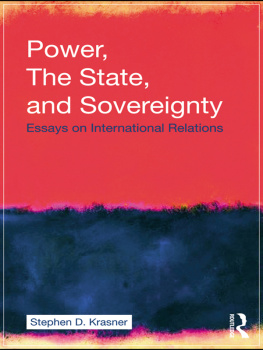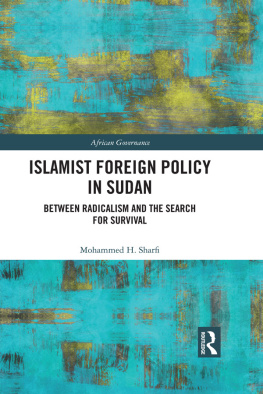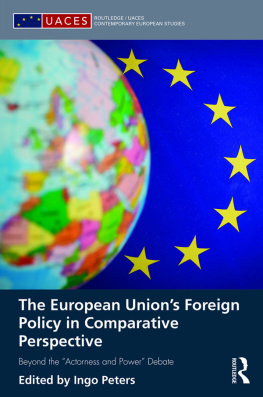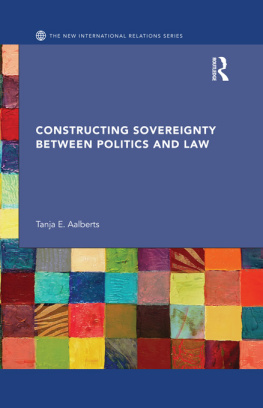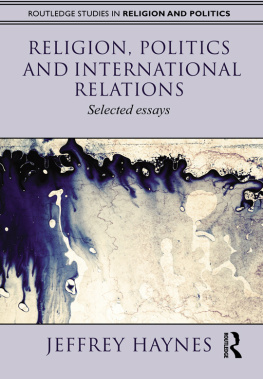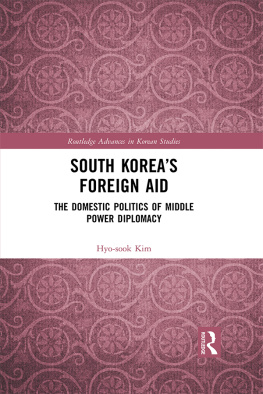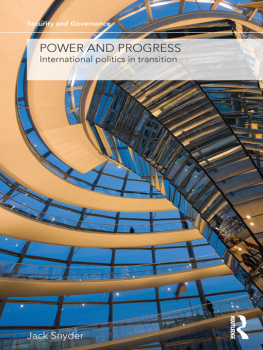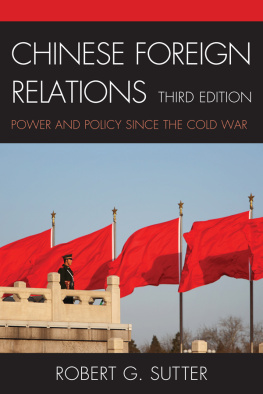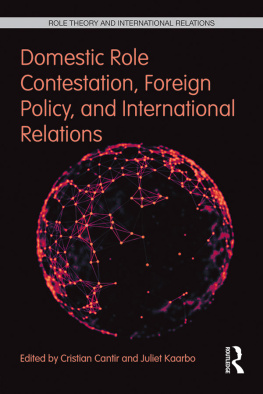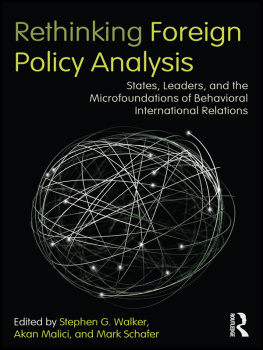Few scholars match Stephen Krasner in incisive analysis of central issues of world politics. These essays make strong arguments without following any party line, and even those who have read them before will benefit from seeing how they fit together.
Robert Jervis, Adlai E. Stevenson Professor of International Affairs, Columbia University
Stephen Krasner is one of the most widely acclaimed scholars of international relations of the past century. This collection features in a single volume his most important and enduring works, along with an integrative introductory essay and a conclusion that reflects on his time in government service. Power, the State, and Sovereignty is a must have book for any serious student of international politics.
David Lake, Professor of Political Science, University of California, San Diego
Krasner has been for several decades a leading theorist of international relations, and was so long before he joined the Bush administration. Whether one agrees with him or not, he is always worth reading and arguing with!!
Peter Gourevitch, Professor of Political Science, University of California, San Diego
Power, the State, and Sovereignty
Stephen D. Krasner has been one of the most influential theorists within international relations and international political economy over the past few decades. Power, the State, and Sovereignty is a collection of his key scholarly works. The book includes both a framing introduction written for this volume, and a concluding essay examining the relationship between academic research and the actual making of foreign policy.
Drawing on both his extensive academic work and his experiences during his recent role within the Bush administration (as Director for Policy Planning at the US State Department) Krasner has revised and updated all of the essays in the collection to provide a coherent discussion of the importance of power, ideas, and domestic structures in world politics.
Progressing through a carefully structured evaluation of US domestic politics and foreign policy, international politics and finally sovereignty, this volume is essential reading for all serious scholars of international politics.
Stephen D. Krasner is the Graham H. Stuart Professor of International Relations at Stanford and a Senior Fellow at the Freeman Spogli Institute and the Hoover Institution. He has served as Director of Policy Planning at the US State Department and on the National Security Council staff. He has written on US foreign policy, northsouth relations and sovereignty and is a Fellow of the American Academy of Arts and Sciences.
Power, the State, and Sovereignty
Essays on international relations
Stephen D. Krasner
First published 2009
by Routledge
2 Park Square, Milton Park, Abingdon, Oxon OX14 4RN
Simultaneously published in the USA and Canada
by Routledge
270 Madison Avenue, New York, NY 10016
Routledge is an imprint of the Taylor & Francis Group, an informa business
This edition published in the Taylor & Francis e-Library, 2009.
To purchase your own copy of this or any of Taylor & Francis or Routledges collection of thousands of eBooks please go to www.eBookstore.tandf.co.uk.
2009 Stephen D. Krasner.
All rights reserved. No part of this book may be reprinted or reproduced or utilised in any form or by any electronic, mechanical, or other means, now known or hereafter invented, including photocopying and recording, or in any information storage or retrieval system, without permission in writing from the publishers.
British Library Cataloguing in Publication Data
A catalogue record for this book is available from the British Library
Library of Congress Cataloging in Publication Data
Krasner, Stephen D., 1942
Power, the state and sovereignty : essays on international relations / Stephen D. Krasner.
p. cm.
1. United StatesForeign policy. 2. HegemonyUnited States. 3. International relations. I. Title.
JZ1480.K725 2009
327dc22
2008035319
ISBN 0-203-88213-X Master e-book ISBN
ISBN13: 978-0-415-77482-6 (hbk)
ISBN13: 978-0-415-77483-3 (pbk)
ISBN13: 978-0-203-88213-9 (ebk)
.
For Patricia with love
Illustrations
Tables
Some indicators of United States potential external power
Executive departments involved in international economic policy
US sectoral trade balances
US foreign direct investment
Foreign activities of US banks
Dimensions of institutionalization
Consequences of increasing returns
Probability of an open trading structure with different distributions of potential economic power
Regional trading patterns
Indicators of British potential power
Indicators of US potential power
Figures
Three realms of international relations: foreign policy, international politics, state-building
Regimes as intervening variables
Regimes as causal variables
Regimes as autonomous variables
Ratio of trade to aggregate economic activity, nineteenth century to 1960, at current prices
Ratio of trade to gross domestic product 19501972, at current prices
Simple coordination problem
Battle of the Sexes
Battle of the Sexes with tactical linkage
Preface and acknowledgements
It was very flattering to be asked to put together a collection of my essays. The timing was propitious. I had just served two years in Washington and I thought that my return to Stanford would give me time to reflect. This positive glow lasted until I actually started to reflect. What to make of more than thirty years of work? Would it all actually hang together in any coherent way? Would I, like Molires M. Jourdain, discover that I had been speaking prose my whole life, or would I find a jumble of unrelated themes and ideas? Would I have to appeal to Ralph Waldo Emersons observation that a foolish consistency is the hobgoblin of little minds, adored by little statesmen and philosophers and divines, a statement that never made much sense to me?
Although nothing that I have written about international politics has ignored the importance of power, much of my work has also been attentive to the importance of ideas, particularly the role that Lockean liberal values have played in American foreign policy, and to institutions, especially domestic structures, international regimes and sovereignty. My initial work dealt primarily with issues associated with international political economy, a field that did not exist when I began my academic career. In the 1970s and 1980s I wrote about American raw materials policy, international trade, and relations between industrializing and developing countries. More recently I have focused on sovereignty, how it should be understood and how it has actually functioned.
The analytic frameworks deployed by political scientists have also changed dramatically over the last thirty years. Economistic thinking, most notably the idea of self-enforcing institutions as a key to understanding politics, has become much more prominent. Sociological analyses of decoupling between logics of appropriateness and logics of consequences have influenced much of my recent work. I have had the very good fortune to be at institutions where some of these key ideas were developed and expanded, and my own thinking has changed over time as a result of these influences.

